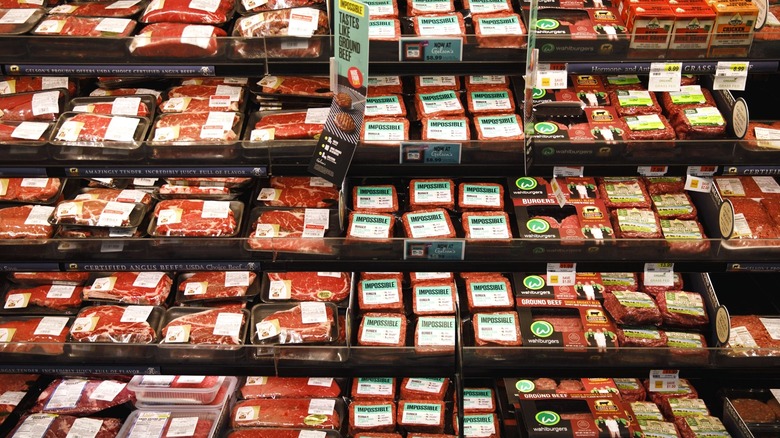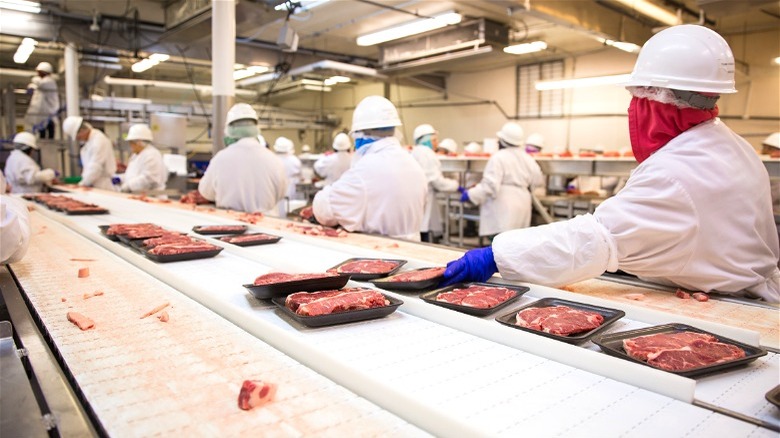Is This Why The Price Of Beef Keeps Increasing?
While there are obvious price discrepancies in beef cuts, if you live in the United States, the price you are currently paying for beef, whether you're buying ground or filet mignon, is much higher than five years ago. While supply and demand variations are expected each year, prices in the meat market began going haywire at the start of the COVID-19 pandemic in 2020.
According to Politico, plant workers were sick so frequently that businesses weren't running at maximum capacity. Ranchers were forced to sell cattle at lower dollar amounts due to the oversupply of animals ready for slaughter and businesses running at 50% less than average processing capacity (via Oxford Academic).
While costs have since stabilized concerning employment and market demand due to the pandemic (per the USDA), inflation is now primarily responsible for the surge in beef prices.
The price of food in grocery stores has increased by more than 6% in the last 12 months, and the category of food most affected is meat, with an increase in prices by over 12% compared to last year. According to CNBC, inflation rose over 8% in just one month, making it the highest rate since 1981.
While the COVID-19 pandemic and rising inflation play a large role in the ups and downs of today's beef prices, some experts suggest there is more going on behind the curtain of that beef tenderloin price tag.
The monopoly on beef
According to CBS News, costs may be rising for Americans, yet the four major corporations that run the meat packing industry in the United States are making bank. Tyson, JBS, Seaboard, and Marfrig, the four companies controlling over 80% of the American meat markets, have almost doubled their profits largely over the last year due to forced price increases in grocery stores.
This especially affects beef, as costs have skyrocketed at an alarmingly high rate of 20% compared to last year (per CBS News). The Open Markets Institute believes the solution to these crazy prices is to break up these four major corporations so no company runs more than 10% of the meat industry (via Politico).
U.S. President Joe Biden agrees and sees the monopoly on meat as a serious threat to the livelihood of American citizens. According to the Union of Concerned Scientists, the year 2023 has hope for Americans as The United States Farm Bill, which gets reworked every five years, expires, and a new, more tightly monitored bill is in line. Biden plans to rework how farms are supported as he has allotted $2 billion for increasing the growth of smaller ranches to increase competition in the meat market.
While some supply and demand factors are out of our control, the rising price of beef due to big business will hopefully not be something we need to consider when buying a pack of ribeyes in 2023.

